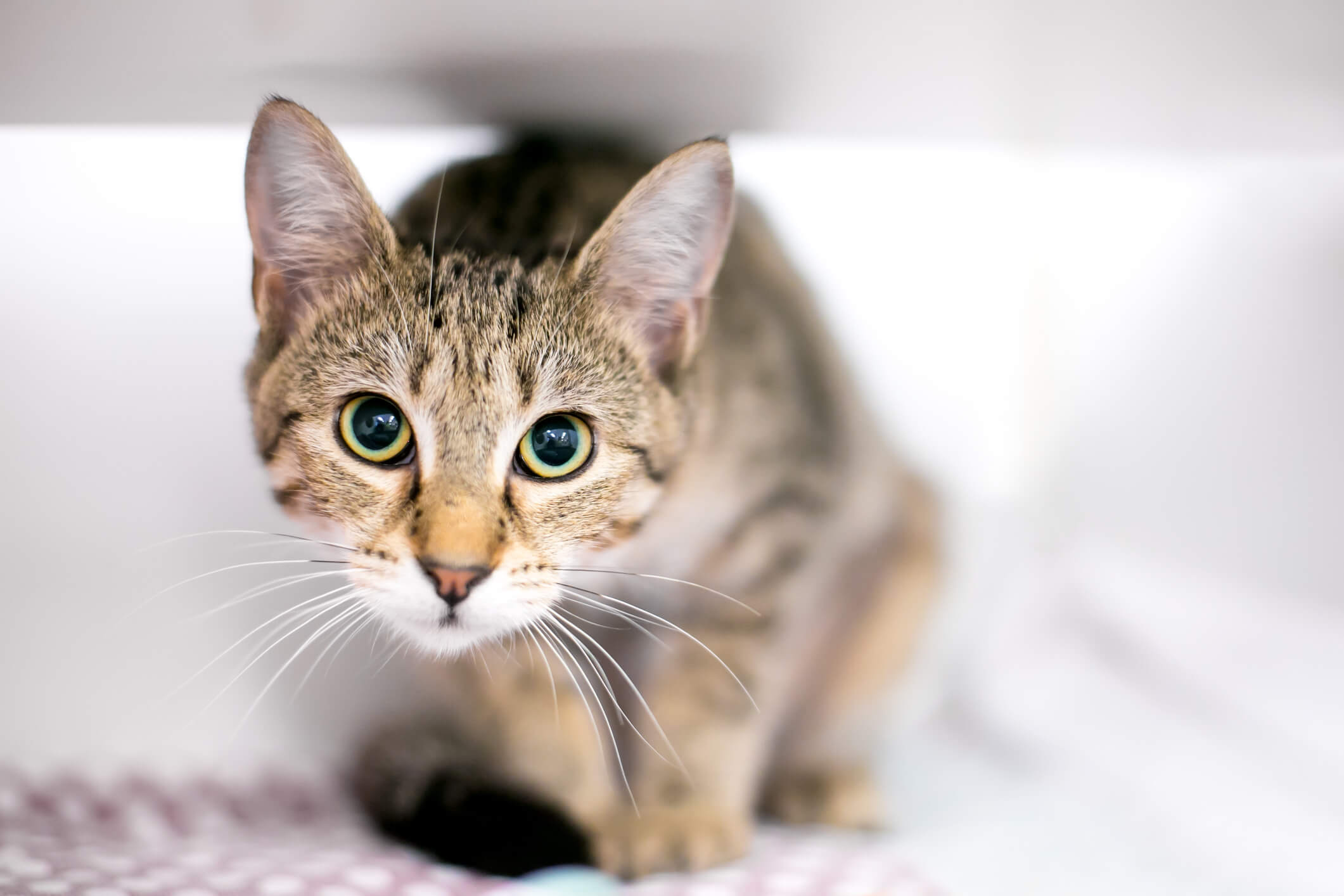
Managing General Anxiety in Dogs and Cats
Anxiety can set in before pet parents have a chance to react. A knock on the door or a crowded dog park can send your pet into a bout of uncontrollable shaking or sprinting all over the place. You can’t prevent anxiety every single time, but a few simple tricks can help your fur baby calm down a whole lot faster.
Experiment with these tips next time your pet encounters an anxiety-inducing situation:
- Play relaxing music: Music often calms anxious pets in any situation. Some owners put on music when they leave pets at home because it’s a sound commonly associated with the owner’s presence. Music can also mask triggering noises like traffic, thunder or fireworks. Classical, soft rock and reggae appear to be the most effective, but pet parents should experiment until they find a genre that reduces their fur baby’s anxiety symptoms the most.
- Burn off nervous energy: Anxiety can make pets high strung, which leads to destructive behaviors if they don’t have an outlet for all that energy. Tiring out your pet with a long walk or rigorous play session will help them relax both physically and mentally. For pets with separation anxiety, the best time to exercise is right before you leave for an extended period of time. Exercise can help pets settle into a comfy napping spot and doze off until you come back home
- Try a stress-relieving tincture: Lots of stress-relieving supplements for pets are available on the market. They’re made with herbs that create a natural, mild sedative effect such as skullcap, valerian root and lemon balm. Passion flower is another common ingredient due to its ability to slow a racing heartbeat. Hops are added to relax smooth muscles and prevent “bad” behavior associated with anxiety, like peeing inside the home.
- Mentally stimulate your pet: Many pet owners believe the only way to burn off anxious energy is to run their four-legged companions through a hard workout. While exercise is highly effective for treating anxiety, pet parents can tucker out their fur babies just as much with mentally stimulating activities. For instance, dogs love digging treats out of puzzle toys. You can do the same for cats or teach them a fun new trick. In addition to tiring their brains, mental stimulation gives pets something to fixate on in place of the anxiety trigger.
- Give them items with your scent: Owners can’t be home all the time to calm their pets when a barking dog walks by or construction strikes up across the street. While you’re away, pets find solace in snuggling up to objects covered in your scent. Place a used shirt, pillowcase, blanket or towel in the pet’s bed so they have a way to calm themselves when no one is around.
- Spray pheromones in their environment: Pheromones are highly effective at calming anxiety in both dogs and cats. Pheromones are a natural odor that nursing mothers release to soothe their babies. A synthetic version of pheromones is available in the form of sprays, scented collars, wipes and plug-in diffusers. Pheromones work best during situations you know will cause some stress, like a trip to the vet, car rides, house parties, firework displays and boarding.
- Buy a compression vest: Similar to pheromone sprays, compression vests are meant to be worn during high-stress situations that trigger anxiety. They’re more common (and more tolerated) among dogs, but many brands make compression vests for cats, as well. These vests apply constant, gentle pressure to make your pet feel secure. It’s like receiving a big warm hug all the time! Compression vests, shirts and sweaters come in all different sizes, so consult your vet about which one is best and how to use it.
- Administer a calming supplement: Your pet may benefit from a calming supplement packed with organic herbs designed to relax the mind and body. Ashwagandha in particular is known for its ability to relax the nervous system and naturally alleviate feelings of stress. Other pet-safe ingredients like holy basil leaf and eleuthero root reduce the volume of stress hormones released in triggering situations. Many pet supplements are available in tincture form, which lets you place a couple drops in the mouth rather than coaxing your pet to swallow a pill.

Anxiety in pets is understandably concerning, especially if you don’t know what’s causing your fur baby to act out of character. It takes time to learn a pet’s triggers, because every cat and dog reacts to situations in different ways. A pet parent who can predict their four-legged companion’s behavior in certain scenarios is better equipped to address the anxiety right then and there.


